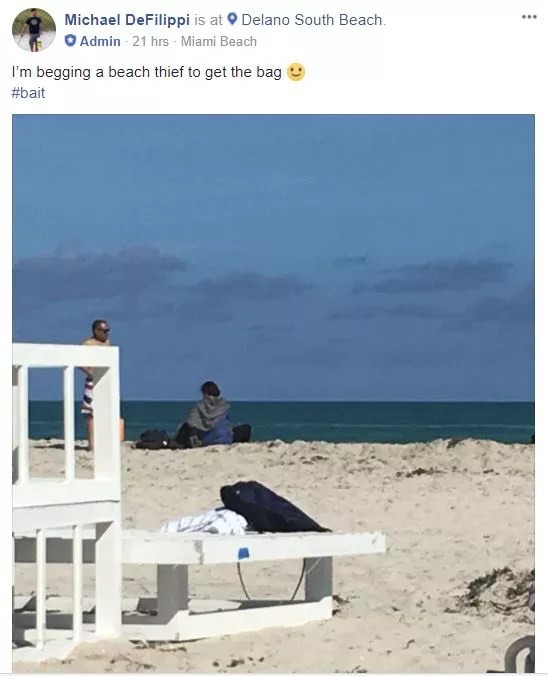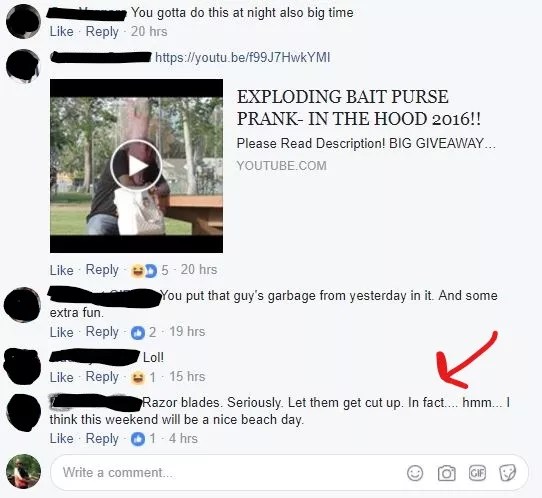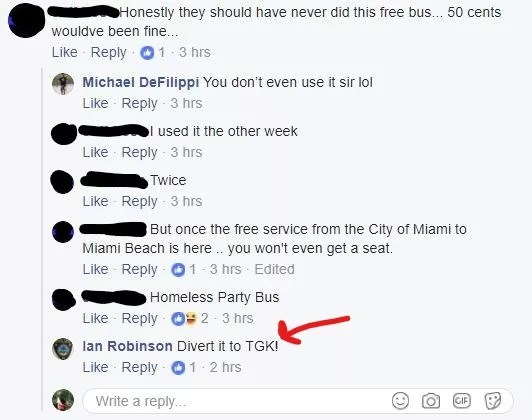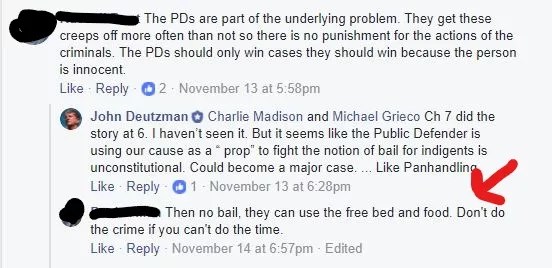
Photo by Laura Morcate

Audio By Carbonatix
Miami Beach leaders took turns last week heaping praise on the founders of a secret Facebook group aimed at banishing criminals from the city. “You’ve taken an active role to become part of a solution for your community, and it’s just beautiful,” Commissioner John Elizabeth Alemán gushed. Added Commissioner Kristen Rosen Gonzalez: “I am just so proud of you guys… I think that the word in county jail is going to be, ‘Go to Hollywood Beach!'”
Mayor Dan Gelber thanked group founders John Deutzman and Michael DeFilippi “on behalf of the city.” Commissioner Michael Góngora handed each of them a certificate of appreciation. Then the commissioners and Police Chief Dan Oates lined up behind the two and everyone smiled for a commemorative photo.
What no one mentioned during this glad-handed love fest is that the group, Miami Beach Crime Prevention & Awareness, has been criticized by advocates and groups including the ACLU for its methods and attitudes toward minorities and the homeless. Among many troubling aspects: Some of its members have openly suggested inflicting pain on suspected criminals, its leaders’ street patrols often seem to focus on minorities and the homeless, and its push for higher bonds punishes people who haven’t even been convicted.
Is this the sort of thing the city should be gleefully endorsing?
Asked whether he was familiar with the controversy surrounding the group, Commissioner Góngora, who came up with the idea of giving certificates to the group, acknowledges, “I’m not as aware of it as maybe I should have been.”
In the center, South Beach residents John Deutzman and Michael DeFilippi stand with proclamations from the city. Their efforts were recently profiled in this New Times story: https://t.co/FRzjBRTUHL pic.twitter.com/9A8wZ8mL6E
— Joey Flechas (@joeflech) January 17, 2018
New Times detailed the rise of the group – as well as its controversies – in a cover story earlier this month, which Góngora says he has not yet read. (“I have not read your story yet beyond the headline,” Gongora admitted on Twitter.)
The group of about 1,500 members has, for starters, discussed setting up civilian stings, with DeFilippi apparently placing a bait backpack on the beach. “I’d love to entrap a scumbag,” he wrote.
One member suggested taking things further by placing razor blades in bait bags as a means of injuring would-be thieves. New Times reporters, along with other local journalists, were booted from the group after the story was published. But we saved screenshots:

The razor blades comment was made in response to DeFilippi’s post:

Góngora, who is in the group, says of the razor blades post, “I do not agree with that comment at all.” For his part, Oates said previously he doesn’t think it’s appropriate for civilians to set up stings.
But there he was posing for a photo with DeFilippi and Deutzman.
The captain of the police department’s entertainment district squad, Ian Robinson, was “counseled” after New Times asked the department about the following comment:

TGK is a reference to Turner Guilford Knight Correctional Center, the implication being that people who are poor or homeless belong in jail. In a statement included in the cover story, Oates said the post was “an attempt at humor and clearly inappropriate,” and that Robinson “understands the importance of our department maintaining a proper and objective posture in regards to all issues involving the homeless.”
You might expect these kinds of comments to make city officials – many of whom are members of the group and therefore have access to them – hesitant to slap a seal of approval on the operation. Nope.
DeFilippi and Deutzman’s efforts aren’t limited to the online realm. In the real world, they often walk around the city sending
Nancy Abudu, director of legal operations for the ACLU of Florida, cautioned that police need to “make sure they are not cosigning on any profiling or
Góngora says he hasn’t seen evidence of those issues, adding that he’s a Democrat who embraces all kinds of people.
“If I hear that somebody is being profiled because of their race, that would be of concern to me,” he says. “Any type of profiling, I think, is bad. I don’t think any specific type of group or person should be profiled based on how they look, who they are, how they speak.”
But civil rights advocates’ concerns with the group’s efforts go beyond their citizen patrols. DeFilippi and Deutzman have also been showing up to court to implore judges to impose higher bonds for repeat offenders, keeping them behind bars before trial. This goes against current criminal justice reform efforts that argue bond is a burden inflicted only on the
Judging by comments in the Facebook group, that’s not a concern for some members:

Góngora argues that raising bonds sends a message to repeat offenders: “If you’re picked up for a crime one night and you know you’re going to be released the next day, pretrial release on your own recognizance, there’s no incentive for you to comply with the law.”
The Miami-Dade Public Defender’s Office has clashed with the group, repeatedly fighting its members’ ability to testify for
“That circumvents our Constitution’s fundamental underpinnings,” Richard De Maria, Miami-Dade’s executive chief assistant public defender for administration, told New Times. “The presumption of innocence is key.”
Góngora says the city wanted to recognize DeFilippi and Deutzman for “donating their time to helping keep our city safe.” It’s not a response, he says, to any of the criticism.
“The ACLU is focused on individual rights and civil liberties,” he says. “I respect that and support that, but I have to focus on the safety of the city overall. And at times those two issues come into conflict.”
Hmm.